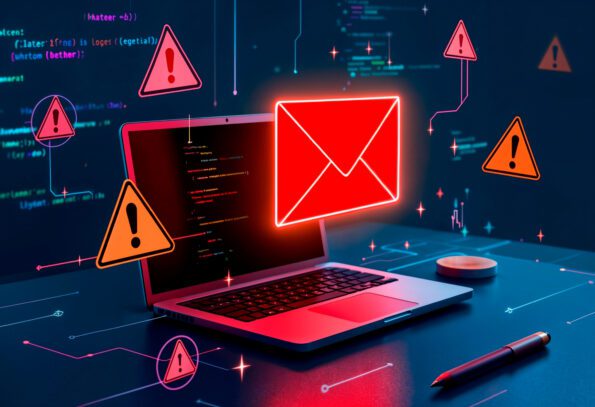If You’ve Been Hit by Phishing Scams More Than Once, You’re Not Alone
You clicked. Or someone on your team did. An email looked just convincing enough, and before you knew it, confidential information was compromised.
Sound familiar?
Phishing attacks are not only becoming more sophisticated, they are getting harder to detect. What used to be obvious scams filled with poor grammar and fake logos now mimic real communication so closely that even seasoned professionals are getting fooled.
The worst part? Businesses rarely learn the lesson after the first hit. Many get hit again, often within months. Why? Because the root cause remains unaddressed—your team is not properly trained to spot the threat.
Let’s break down how phishing bypasses your systems and what to do if you are tired of learning the hard way.
Why Your Firewalls and Filters Are Not Catching It All
Security software helps, but phishing is not always technical. It is psychological. Attackers use trust and timing to manipulate human behaviour.
Here’s what phishing scams do that make them so dangerous:
- Imitate real company names and employee communication styles
- Use urgent or emotional language to create panic or pressure
- Link to cloned websites that look nearly identical to the real ones
- Come from email addresses that look legitimate at a quick glance
Your systems might scan for known threats, but phishing evolves daily. It only takes one clever email to breach your entire operation.
That is why it support services in Leeds are no longer just about software. They focus heavily on education and awareness training for your team.
How One Local Business Got Hit Twice in Six Months
A financial services firm received what looked like a simple invoice email from a known supplier. The office manager paid it without checking closely. It was a fake. The attacker had been monitoring previous communications and crafted the message to fit perfectly.
Despite tightening their email filters, the firm got hit again six months later. This time, it was a payroll phishing scam sent to the HR department.
Only when they partnered with managed IT support services in Leeds did they realise that the real issue was not just the emails—it was that their staff had never been trained to spot and question suspicious behaviour.
Once training was introduced and phishing simulations were run regularly, their incident rate dropped to zero.
Why Team Education Is the Only Reliable Defence
Technology can only go so far. If your people do not know what to look for, they are your biggest vulnerability.
Proper education does not mean a one-time training session or a policy buried in an onboarding handbook. It means:
- Ongoing simulations to test how staff respond to real-world phishing tactics
- Clear escalation procedures so staff know what to do if they suspect something is off
- Accessible guidance that breaks down examples of phishing emails and warning signs
- Regular updates about emerging threats and new scam tactics
With it support services in Leeds, these education programs are delivered and maintained by specialists who stay ahead of trends and threats so your business does not have to.
What You Can Do Today to Protect Your Business
If phishing attacks have already cost you money or put your data at risk, take action now. Here’s where to start:
- Review recent incidents and identify how the scam succeeded
- Assess how well your staff understand phishing warning signs
- Implement simulated phishing campaigns to uncover blind spots
- Work with a support partner that provides proactive security training
Do not rely on good luck or assume your staff “should know better.” Make sure they do.
You Can Keep Hoping… or You Can Start Educating
Every time a phishing email lands in someone’s inbox, your business is on the edge of disaster. Hope is not a strategy. Action is.
The only real solution is to pair strong security systems with a well-trained team. That is what managed IT support services in Leeds deliver—education backed by strategy.
Your staff can either be your weakest link or your strongest defence. The choice is yours.
Get in touch today to make phishing protection part of your business DNA.









